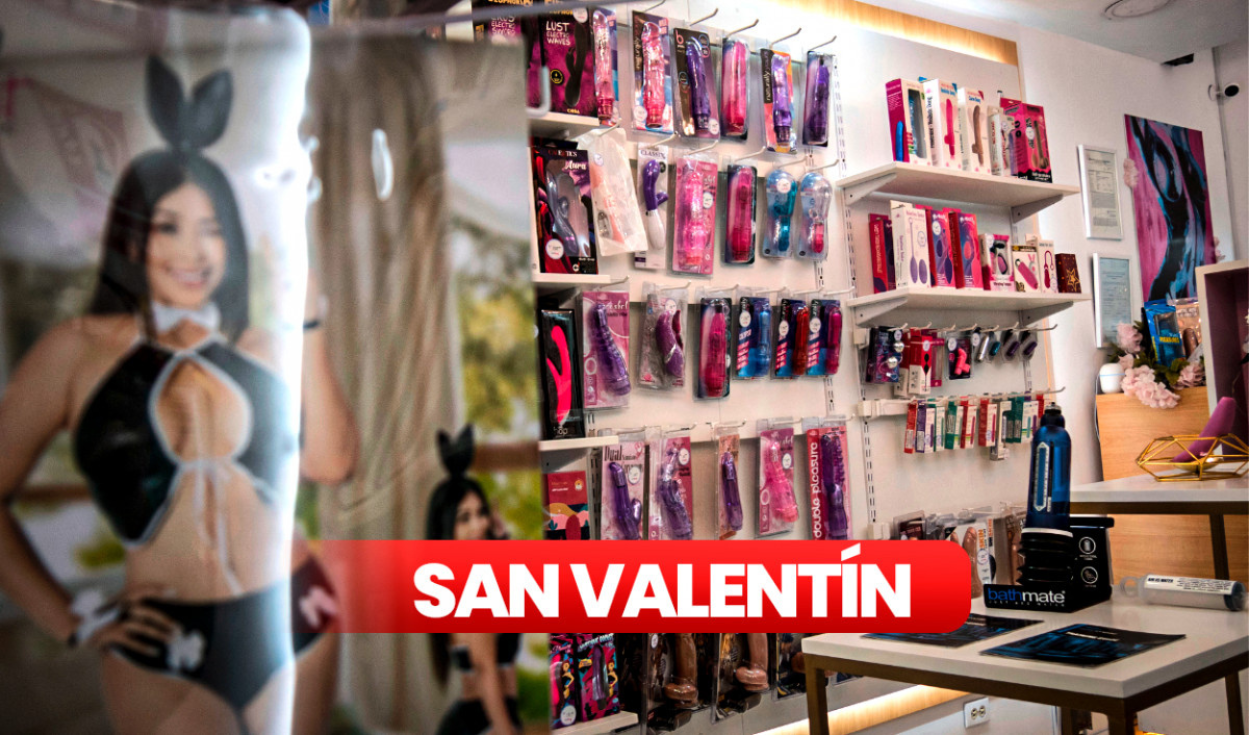
Valentine’s Day is one of the times when sex shops look for greater income. Since 2020, with the confinement due to the pandemic, this market has diversified and has had a trend of greater acceptance.
According to figures from Rappi, a company that delivers sex toys, Peruvians usually spend an average of S/200 on erotic products. The five items that top the list of orders through the app’s allied sex shops are sex toys (42%), lingerie (30%), vibrators (15%), lubricants (11%) and retardants (2% ).
Sex toy companies such as Foreplay, Las Vibrantes and Gvibes, which have been encouraging the purchases of these products through sexual education, point out that many of these purchases, although they are gifts that are given between couples, are also purchased as self-gifts by women of 25 years and older.
“Our generalized sales, currently, are 60% for women, who tend to buy more vibrators or rabbits, and 40% for men, who buy products for couples,” says Silvanna Peraldo of Foreplay.
Recession on Valentine’s Day
This year Valentine’s Day is celebrated in the midst of an eventual exit from the economic recession. In 2023, sex toy companies expressed that the increase in their sales was not constant due to the unstable context of the country, but, despite this situation, interest in toys has remained.
“It seems that the Peruvian public maintains a budget allocation for its entertainment, but favors offers. Sales did not increase, they remained the same as the previous year and, on the other hand, the average ticket fell by 20%, suggesting that people are looking for more attractive prices for the same benefits,” says Peraldo.
However, given this unfavorable outlook, businesses in the sector expect that this year Valentine’s Day sales will remain the same as in 2023 or increase by at least 15%.
“Last year has not been a stable year in Peru. We have been up and down and it shouldn’t be like that, but we started January and February better, so we hope that the economy can stabilize and have a good Valentine’s Day campaign,” adds Sally Romero, commercial director of Gvibes.
Difficulties with social media promotion
Sales of sex toys have not yet left the taboo. Social networks such as Instagram, Facebook and TikTok censor brands’ publications, making it impossible for them to show their products, even blurred.
Foreplay, who were on the verge of losing their Instagram account with more than 100,000 followers, comment that they currently cannot publish any product without their profile being compromised, and since this is their main platform, it is difficult for them to reach a new audience or introduce new toys.
This also happens with Las Vibrantes. Andrea Falconi, creator of this brand, points out that since the beginning of the year new rules have started with the Meta algorithm, which has directly affected the number of its sales.
“We can’t promote our products because we are censored or our page is blocked or it doesn’t show it, even to your audience. This has affected sales, causing a 30% drop in my sales,” laments Falconi.
Given the impossibility of promoting sex toys through social networks, companies have chosen to try different forms of sales, such as purchasing advertising on Google, sending mass messages through WhatsApp, offers on their own websites and participating in fairs.
“You have to be very creative, in my case, I go to fairs, and the sales that occur there can represent 20% of the month’s income,” highlights Andrea.
Source: Larepublica
Alia is a professional author and journalist, working at 247 news agency. She writes on various topics from economy news to general interest pieces, providing readers with relevant and informative content. With years of experience, she brings a unique perspective and in-depth analysis to her work.











